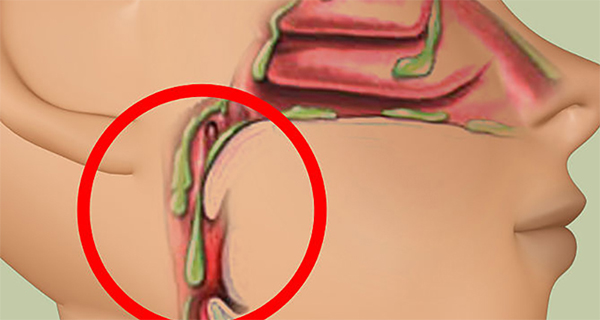Many people are uncomfortable discussing it, but it is a really important biological function. Mucus (also known as snot, phlegm, and boogers) functions as a lubricant for the body.
Mucus-producing tissues can be found in the mouth, nose, sinuses, lungs, gastrointestinal (GI) tract, and throat. The mucus produced by these tissues really works to protect the surfaces of various areas of the body, preventing the tissues beneath them from drying up.
Mucus also protects the body from infection by viruses, bacteria, and other pathogens. When something that shouldn’t be in the body enters with the goal of making a person sick, the mucus traps the foreign pathogen, preventing it from entering the body and infiltrating the immune system. In other words, mucus protects against illness.
That disgusting, sticky, green substance that seems to be created by the boatload while you are sick is actually trying to help you. Mucus, for example, contains antibodies, enzymes, protein, and cells, to name a few components.
Find out more about: Healthy Ice Cream From Three Ingredients, Prepared in 5 Minutes
All of these are beneficial to the body, especially while it is ill. When you’re sick, you surely notice an increase in mucus production, right? That’s because mucus is being created at a higher pace to aid in the battle against your disease. When you think about it, it’s actually pretty cool.
Concerning Mucus Production
The human body constantly produces mucus; however, you don’t notice it most of the time because it is usually thin in substance and hence slips down the back of your throat unnoticed.
However, there are occasions when your mucus changes consistency, and it is during these times that you notice the production and wish to get rid of it.
As previously said, when you are sick, mucus thickens and sticksier, which is why you frequently blow your nose and hock back ‘loogies’ when you have a cold, sinus infection, or the flu.
It can also alter consistency when your body is exposed to an allergen and is attempting to defend itself. Certain meals, believe it or not, might also lead you to produce more mucus.
Foods that Create Mucus
There are certain foods that cause gustatory rhinitis to go into effect, a reflex reaction that is set off by eating. As a result, your body goes into overtime producing mucus.
Researchers have found that there are four foods, in particular, that cause the increased production of mucus. If you want to minimize the amount of mucus your body creates, you’ll want to avoid these four foods:
- Milk and other dairy products
- Red meat that has a high fat content
- Alcohol
- Gluten
These foods are known to activate the gustatory rhinitis, which speed up the production of mucus and can make you feel miserable.
After reading this text you can also read about: How to Grow A Pineapple From Another One – Easily!



